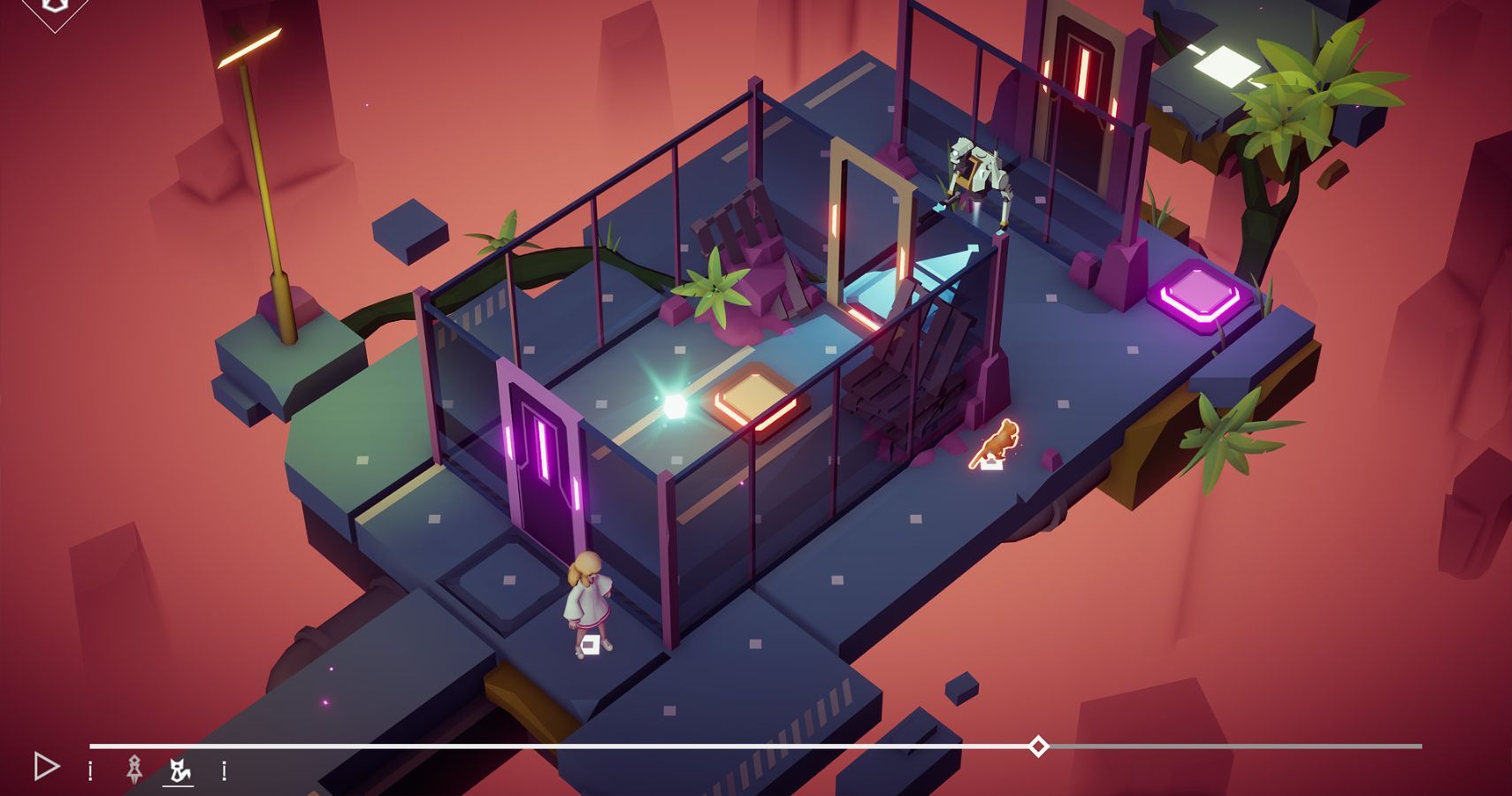You wouldn't know it by looking at screenshots, but Timelie is Urnique Studio's debut video game. It's a beautiful indie title, weaving together a non-traditional narrative with a creative time-manipulation system. We recently had a chance to connect with Parimeth Wongsatayanon — the Creative Director at Urnique Studio — to learn more about Timelie and its fascinating development history.
Believe it or not, Timelie started out as a student project that was a "mix of different ideas [and] games each team member would want to play." At its core, Timelie is a puzzle game — a genre beloved by the entire group. Players will also notice that it is heavily influenced by the stealth genre and revolves around the core concept of manipulating time. However, Urnique Studio wanted to find a way to put their own touch on the tried-and-true "time manipulation" feature seen in so many other games.
As is usually the case with game development, Timelie underwent some big design changes as the team dove into the creation process. According to Wongsatayanon, the current game "doesn't even resemble what it started off as during our prototyping."
And oddly enough, the game that exists today was heavily inspired by YouTube videos. One day while browsing the popular site, Wongsatayanon realized that the timebar which allows viewers to fast forward or rewind the clip could be implemented into a game, resulting in a unique and engaging experience.
Pairing a timebar with a puzzle game is a bold choice, but one that seems to be paying off. Despite warnings from their professor, the team of students dropped everything, moved into a small apartment together, and did nothing but work on Timelie for months on end. Once the game was finished, they entered it into a national software contest in Thailand — and won.
After winning, they were invited to enter the Imagine Cup Thailand competition in 2016. It was a massive opportunity and the young crew jumped at the chance to participate. They presented Timelie to the judges — all of whom showed no enthusiasm towards their title — and held their breath while the awards were announced.
The winner of the Games Category at Imagine Cup 2016 was — Timelie.
Wongsatayanon says it best:
We were in shock and couldn't believe it. You can track down a video online of the moment and see five Asian college students who didn't even know how to hold up their prize board and let one of the most [influential] tech luminaries in the world do it for them!
Urnique Studio was kind enough to send us a short demo, allowing us to go hands-on with the time-manipulation-stealth-puzzler game. And when you finally get the chance to play Timelie, you realize that it deserved to win.
Everything we played was incredibly polished, and all the puzzles we encountered were intricate webs that required calculated actions from the player in order to figure them out. One misstep and you'd be detected, forcing you to rewind time and try again. It's an excellent gameplay loop — attempt, fail, rewind, retry. The only punishment for failure is the need to rewind, giving way for some creative solutions.
Although we couldn't see much of it in our short time with the game, the narrative is "one of the most crucial aspects of the game" and will be told using emergent storytelling. Wongsatayanon wants "to tell a story about friendship" in a way where "hints about the story are woven into the actual gameplay."
When asked about the biggest obstacles facing the team of new developers, Wongsatayanon replied with "Almost everything!" But based on the preview build we've seen, that doesn't seem to be the case. Timelie is shaping up to be a great addition to the indie marketplace, and we can't wait to see more in the coming months.
Timelie is scheduled to release later this year on both PC and mobile platforms.

